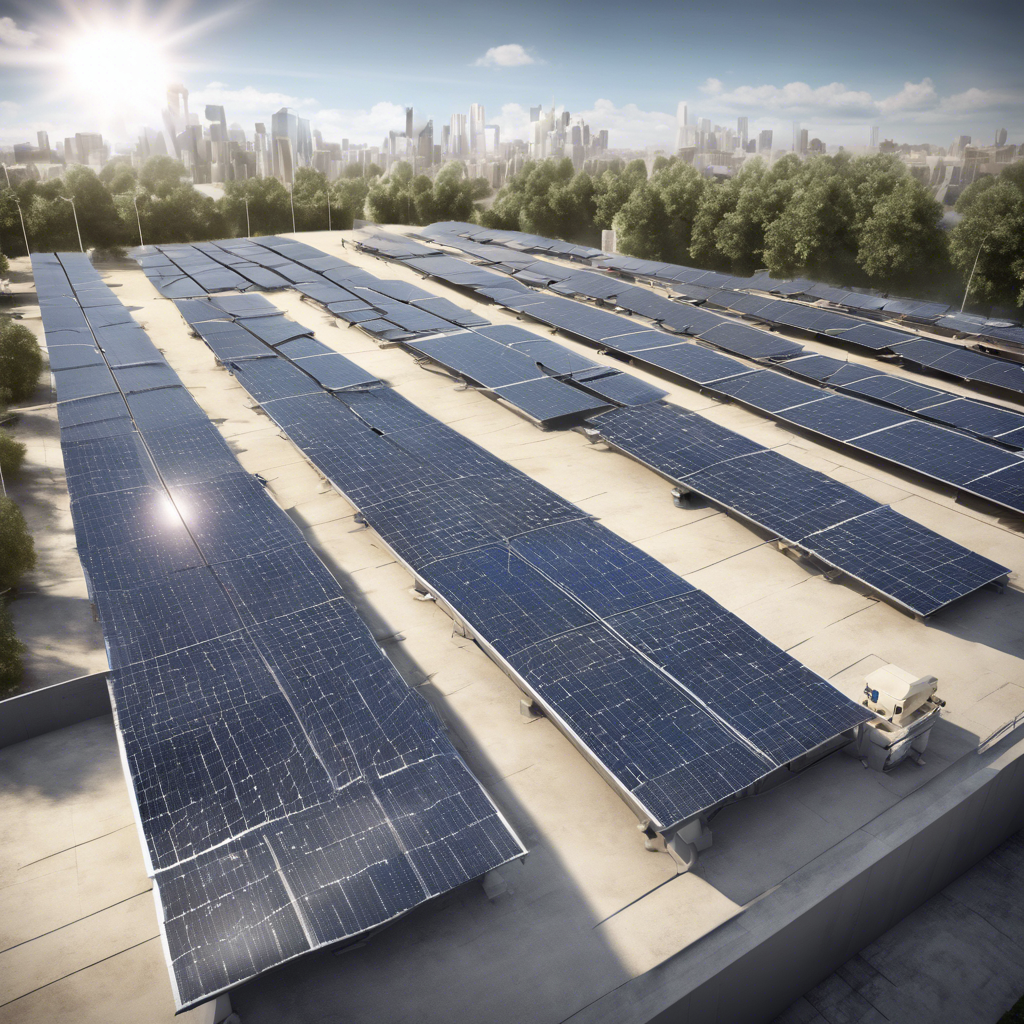Embracing Sustainability in Civil Engineering: Implementing Solar Panels
- Koula Tafea
- Jul 11, 2024
- 2 min read
In the ever-evolving field of civil engineering, sustainability has shifted from a trend to a necessity. Climate change and the need for renewable energy sources have urged professionals in the industry to seek innovative solutions. One such solution that has garnered attention is the integration of solar panels in civil engineering projects. Let's delve deeper into the impact and benefits of implementing solar panels in the realm of civil engineering.
Shifting Towards Renewable Energy
The world is at a crossroads, where traditional energy sources are proving to be insufficient and harmful to the environment. Civil engineering, being at the forefront of infrastructure development, plays a crucial role in transitioning towards sustainable practices. Solar panels offer a clean and renewable energy source that can power structures, reduce carbon footprints, and contribute to a greener future.
Key Benefits of Solar Panel Integration
1. Environmental Impact
Embracing solar energy significantly reduces reliance on fossil fuels, leading to a decrease in greenhouse gas emissions. By harnessing the power of the sun, civil engineering projects can operate with minimal environmental impact, aligning with global sustainability goals.
2. Cost-Efficiency
While the initial investment in solar panels may seem substantial, the long-term cost savings are undeniable. Sustainable energy solutions not only decrease utility expenses but also offer opportunities for rebates and tax incentives, making it a financially savvy choice in the long run.
3. Energy Independence
Solar panels facilitate energy independence by providing a reliable power source that is not subject to fluctuations in utility prices or availability. This independence is especially valuable for remote civil engineering projects where grid connectivity may be limited.
4. Enhanced Reputation
Incorporating solar panels into civil engineering projects showcases a commitment to sustainability, which can enhance the reputation of firms within the industry. Clients and stakeholders increasingly value environmentally conscious practices, making solar integration a strategic decision for firms looking to differentiate themselves.
Overcoming Challenges and Implementing Best Practices
While the benefits of solar panel integration in civil engineering are evident, there are challenges to navigate and best practices to consider. Factors such as project location, orientation, shading, and maintenance play crucial roles in maximizing the efficiency of solar panels. Collaborating with experts in solar technology and conducting thorough feasibility studies are essential steps towards successful implementation.
Case Studies in Solar-Powered Civil Engineering
1. Solar Highways
Solar panels integrated into highways are revolutionizing transportation infrastructure by generating renewable energy from vast stretches of road surfaces. These solar highways not only power nearby communities but also incorporate innovative features like heated surfaces to prevent snow accumulation, enhancing safety.

Conclusion: Embracing a Sustainable Future
The integration of solar panels in civil engineering projects symbolizes a commitment to sustainability, innovation, and a greener future. By harnessing the power of the sun, professionals in the industry can lead the way towards a more resilient and environmentally conscious built environment. As we navigate towards a future defined by climate action, the adoption of solar energy stands as a beacon of hope for a sustainable tomorrow.
Let us embark on this transformative journey, where civil engineering meets renewable energy in a harmonious blend of progress and sustainability.




Comments